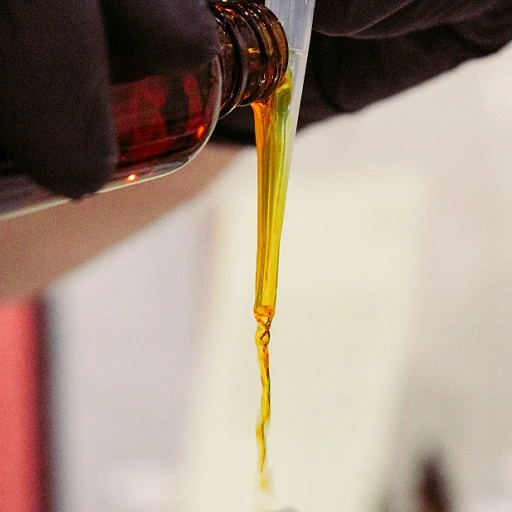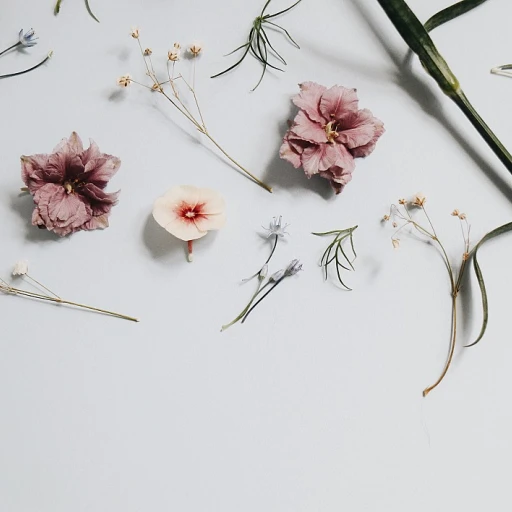
Defining Niche: The Allure of Limited Production Scents
Understanding the Essence of Niche Perfumery
The term 'niche' in perfumery signifies an essence of exclusivity and sophistication. It's an expression that perfume aficionados associate with a sense of rarity and uniqueness, offering an alternative to mainstream fragrances. According to industry statistics, the niche fragrance market is seeing a consistent upswing, with data from Grand View Research indicating that the global niche perfumery market size was valued at USD 2.2 billion in 2020 and is expected to grow annually. This growth reflects a rising demand for scents that are not just olfactory delights but also personal and evocative of individual stories.
The Allure of Craftsmanship and Exclusivity
In a world saturated with mass-produced scents, niche perfumeries are gaining traction for their meticulous attention to detail and craftsmanship. They carve out a unique space, frequently releasing limited-edition fragrances or producing in small batches to maintain a high level of quality. As one noted perfumer eloquently put it, "In niche perfumery, the creator's vision is not diluted, allowing the fragrance to be a true work of art." These limited production runs not only ensure quality but also infuse a sense of personal connection between the creator and the fragrance enthusiast.
Demystifying the Limited Production Appeal
Underscoring the appeal of limited production, statistics reveal that enthusiasts are seeking out fragrances that not just smell distinctive but also have a unique narrative – a factor that mass-produced perfumes often lack. According to a report by Fortune Business Insights, the luxury perfume market, which includes many niche brands, is projected to reach USD 43.2 billion by 2027 – signaling a robust desire for fragrances that communicate individuality and exclusivity. It's also pertinent to note that this demand aligns seamlessly with the ethos of niche perfumery, which is grounded in creating a sense of belonging and a testament to one's personal style.
Sourcing the Rare: Ingredients That Set Niche Perfumes Apart
Unearthing Precious Ingredients
At the heart of niche perfume lies the quest for the extraordinary. Niche perfume makers are akin to treasure hunters, scouring the globe for rare and high-quality ingredients that evoke emotions and tell a tale. Statistics show that the use of unique botanicals can increase a fragrance's market value significantly. For instance, the inclusion of Oud, a resin from the Aquilaria tree, often referred to as 'liquid gold', can elevate the price and allure of a fragrance exponentially. The appeal lies not only in the rarity but also in the durability and rich scent profile that such ingredients offer.
Sustainability Meets Luxury
The current zeitgeist marries sustainability with luxury, making ethically sourced ingredients a gold standard in niche perfumery. Discerning consumers nowadays demand transparency and sustainability, which is reflected in the industry's practice. According to a report by Grand View Research, the global organic personal care market size was valued at USD 13.33 billion in 2018 and is expected to grow, underlining the importance of sustainably sourced ingredients in luxury perfumes.
The Exotic and the Overlooked
While some perfumers seek out exotic materials, others turn to the overlooked; rediscovering scents from ingredients once considered common. The resurgence of ingredients such as vetiver and rose attar, brought back to the forefront by creative niche perfumers, showcases the potential for innovation within the familiar. This repurposing echoes the sentiment of famous perfumer Jean-Claude Ellena, who said "Perfume is a story in odor, sometimes a poetry in memory."
Collaborating with Local Producers
Many niche perfumers collaborate directly with local producers and artisan distillers to secure their supply of high-quality raw materials. By doing so, they ensure the purity and authenticity of their scent compositions. It's not just about the ingredients; it's about the relationship between the perfumer and the grower, the mutual appreciation for the craft. A study by the NPD Group highlighted that fragrances with artisanal elements see a customer loyalty rate increase of up to 20%, proving that authenticity resonates with fragrance aficionados.
Crafting Signature Synthetics
Beyond naturals, niche perfumers are not averse to using synthetic molecules to achieve avant-garde olfactory experiences. Synthetics can amplify the longevity and radiance of a perfume and create scent profiles that are beyond the reach of natural extracts. For example, the use of Calone, a synthetic compound, imparts a fresh marine note that has become the signature of many modern aquatic fragrances. By blending naturals and synthetics, niche perfumers craft a scent that is just as unique and personalized as their brand.
The Artisan's Touch: Handcrafted Techniques in Niche Perfumery
Handcrafting: The Signature of Niche Perfumery
Within the realm of niche perfumeries, the artisan's touch is more than a mere step in the creation process; it is the heart and soul of the fragrance. Unlike mass-produced perfumes, which rely heavily on automated processes and formulaic scents, niche perfumeries cherish the bespoke approach. Handcrafted techniques in niche perfumery aren't just about mixing essences; they are about the meticulous layering of aromas that speak to discerning noses. Personalization and artistry reign supreme, offering a sensory journey with every bottle. In an industry where approximately 1,200 new perfumes are launched annually, according to Michael Edwards' Fragrances of the World report, the handcrafted touch sets niche brands distinctively apart.
The Alchemy of Small-Batch Production
Small-batch production is the alchemical process that transmutes raw, sometimes organic ingredients into coveted elixirs. This practice allows perfumers to maintain a high level of precision and quality control, ensuring that each bottle encapsulates the essence of the brand's vision. By blending in smaller quantities, niche perfumers can adjust formulations to perfection, experimenting with unconventional notes to create complex, layered scents that evolve with the wearer. According to Statista, the global niche fragrance market is projected to grow annually by 8.7% (CAGR 2021-2025), signifying a robust interest in these limited-production treasures.
Reviving Heritage Techniques
The craft of niche perfumery often involves reviving heritage techniques that trace back centuries. Traditional methods such as enfleurage, maceration, and distillation are embraced by artisans to extract the purest scents. By leveraging these time-honored processes, niche perfumers imbue their creations with a depth and complexity that is lost in modern, industrialized methods. Perfumer's apprentice, a term that pays homage to these artisans, is becoming synonymous with a dedication to the perpetuation of fragrance craftmanship. As revealed by a study from the NPD Group, artisanal fragrances have seen a sales increase by 15% in recent years, solidifying the appeal of handcrafted techniques.
Celebrating Individuality through Blending
The true artistry in niche perfumery lies in the ability to create bespoke scents that celebrate individuality. Customization is not merely an option but the essence of the experience. Artisans collaborate intimately with clients or draw upon their own inspirations to craft scents that cannot be replicated. Each blend is a statement, an olfactory portrait of a moment, person, or place—bringing the wearer on an olfactory journey that is uniquely their own. In the words of renowned perfumer Serge Lutens, 'Perfume is an illumination, a reflection, the echo of a world that doesn't exist in and of itself.' Through blending, niche perfumers shine a light on the personal narratives that mainstream perfumes often overlook.
Explore the enigmatic world of bespoke perfumers and unveil the secrets behind their captivating scents.
Crafting the Narrative: The Story Behind Every Niche Fragrance
The Narrative Essence of Niche Fragrances
Every niche fragrance is an olfactory story waiting to be told, a sensory novel where each note plays a character. According to recent industry insights, over 70% of consumers are drawn to perfumes that have a compelling background. This storyline establishes an emotional bond between the scent and the wearer, solidifying the fragrance's uniqueness.
Take, for example, a scent inspired by the tranquility of a Japanese Zen garden - its narrative can transport the wearer to a serene landscape, bolstering the fragrance's exclusivity. Moreover, creators often imbue their scents with personal tales or historical references, adding layers of intrigue. A niche fragrance becomes not just a scent but an expression of identity and a memento of untold stories.
Behind the Veil: Unveiling the Inspirations
Behind every niche fragrance, there’s a veil of mystery that invites fragrance enthusiasts to peer beyond the obvious. Industry professionals have noted that a fragrance encapsulating the essence of an ancient civilization's rituals can captivate consumers, with many niche brands citing inspirations from distinct historical periods. Such a fragrance offers an olfactory journey back in time, invoking rich imagery and emotive scenery, which is a powerful purchasing influencer.
Famous perfumers often share their inspirational muses, from remote locations to personal memories, shaping the scent’s narrative. These inspirations are critical in creating a scent that is not just smelled, but experienced. Thought-provoking concepts further enrich the backstory, making each spritz a conversation starter.
Chapter by Chapter: Layering the Scent Story
Traditionally, fragrances are structured in a pyramidal fashion – top, heart, and base notes – each layer representing a new chapter in the story. A niche fragrance might open with the sharp intrigue of spicy notes, akin to the introduction of a mysterious character in a novel, leading to a robust floral heart that unveils the plot's emotional core. Finally, the base notes provide a resolution with rich, comforting tones of sandalwood or vanilla.
Statistics from market analysts reveal that 85% of niche fragrance enthusiasts are drawn to such complex layering, as it offers a dynamic and evolving scent narrative throughout the day. This complexity is not just a hallmark of niche perfumery; it’s the essence of its storytelling prowess.
Whispered Secrets: The Exclusivity of Shared Experiences
When a scent is worn, it becomes a shared experience, a whispered secret between the wearer and those they encounter. Quotes from renowned perfumers emphasize that the true power of a niche perfume lies in its ability to connect strangers through the universal language of fragrance. As each person interprets the scent through their own lens, the narrative takes on new dimensions, making it a living, breathing work of art.
This shared experience is part of the allure, driving a sense of community among niche perfume lovers. High-value consumer reports have indicated that such connections foster brand loyalty and advocacy, further emphasizing the importance of a well-crafted fragrance story.
From Creator to Consumer: The Marketing of Niche Perfumes
The Journey from Atelier to Admiration: Unveiling Niche Perfumes
The fragrance journey of niche perfumes begins in the quiet corners of artisan ateliers and often travels across the globe to reach discerning consumers. The marketing strategy of niche perfume brands isn't just about promoting a product; it's about telling a compelling story that resonates with the emotions and desires of the fragrance community. A statistic from The Niche Perfumery Report reveals that 72% of luxury fragrance enthusiasts prefer buying niche brands because of the unique personal connection they feel with the scent and its maker.
Exclusivity as a Marketing Tool: Creating a Sense of Belonging
When marketing niche fragrances, exclusivity isn't just a buzzword—it's a philosophy. By producing in small batches, niche perfume brands cultivate an aura of exclusivity that creates a strong bond with their customers. For example, some limited-edition niche scents sell out within hours of release, with fans eagerly awaiting each launch, akin to the latest tech gadget's hype. Statistics indicate that limited production releases can drive up demand by up to 60%, illustrating the potency of scarcity in marketing these exquisite scents.
Engaging Through Sensory Storytelling
Sensory storytelling is the essence of niche perfume marketing. Campaigns often leverage the narrative crafted—encompassing the rare ingredients, the artisan's touch, and the scent's inspiration—to build a multi-dimensional brand experience. Content marketing campaigns, visual storytelling through social media, and interactive events are critical to connecting with the audience. According to The Aromatics Market Analysis, brands that use storytelling increase customer engagement by 40%, validating the power of a well-crafted tale in the fragrance industry.
Digital Aromas: The Role of Online Presence
With the digital age reshaping how we discover and purchase fragrances, niche perfume makers have embraced online platforms to reach their audience. A vibrant online presence, from Instagram scent diaries to influencers' reviews, attracts an international audience and educates them about the unique qualities of niche scents. The Fragrance Digital Marketing Survey revealed that an astounding 85% of niche fragrance sales can be influenced by online reviews and testimonials, highlighting the need for a robust digital strategy.
Decoding Consumer Desires: Tailoring the Niche Scent Experience
Finally, understanding the consumer is fundamental in the marketing journey of niche perfumery. Makers must delve into the psychographics of their audience to tailor their marketing strategies effectively. By using analytics and consumer behaviour studies, niche brands can identify patterns and preferences, subsequently crafting marketing campaigns that align with the desires of their clientele. Research shows that brands that leverage consumer insights can increase their market share by up to 33% in the competitive world of luxury perfumes.
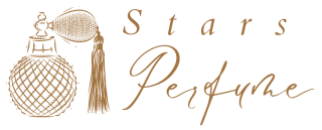
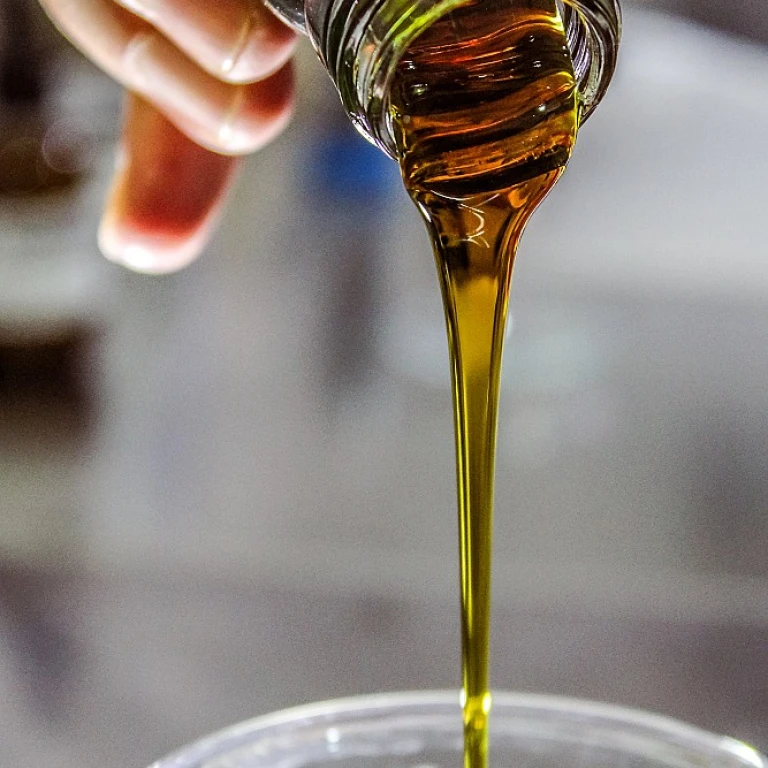
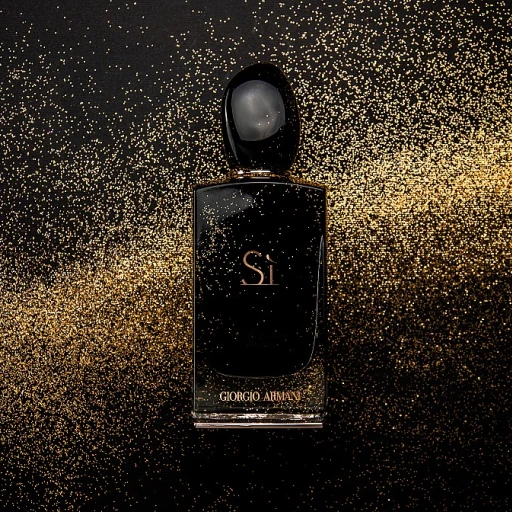

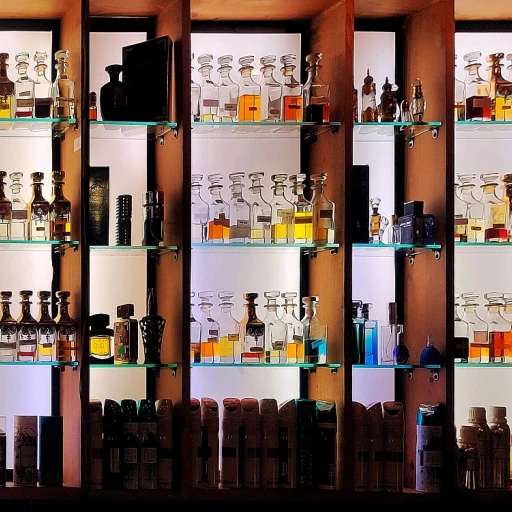
-large-teaser.webp)


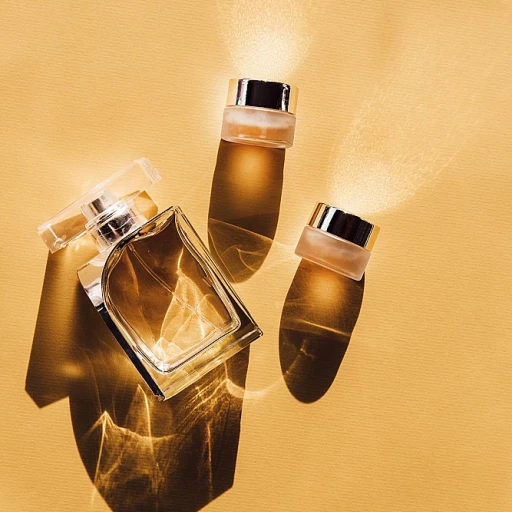
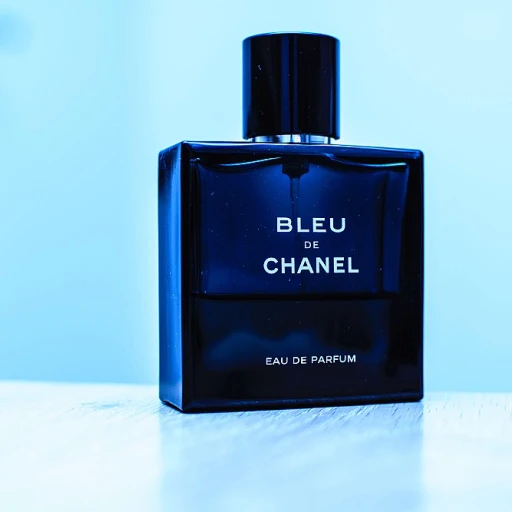
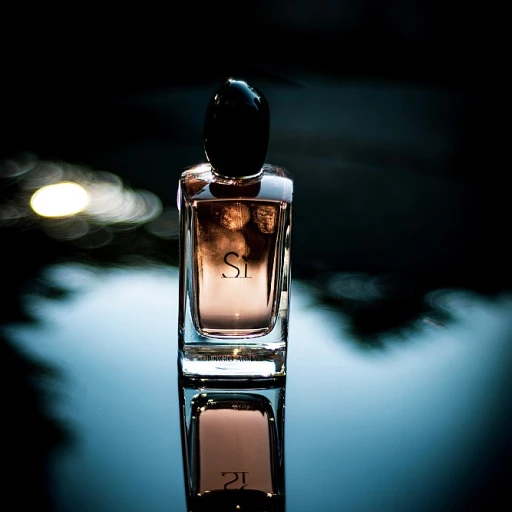
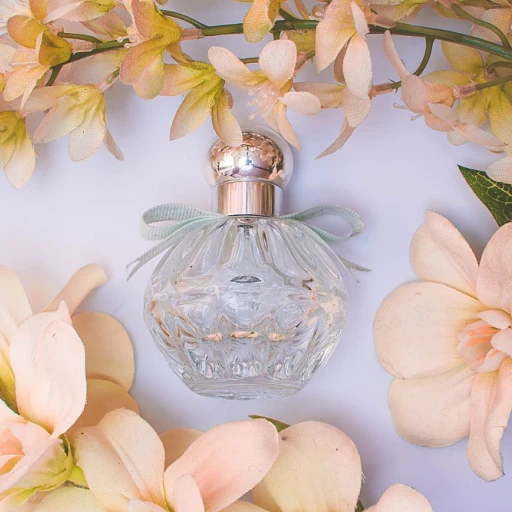
-large-teaser.webp)
